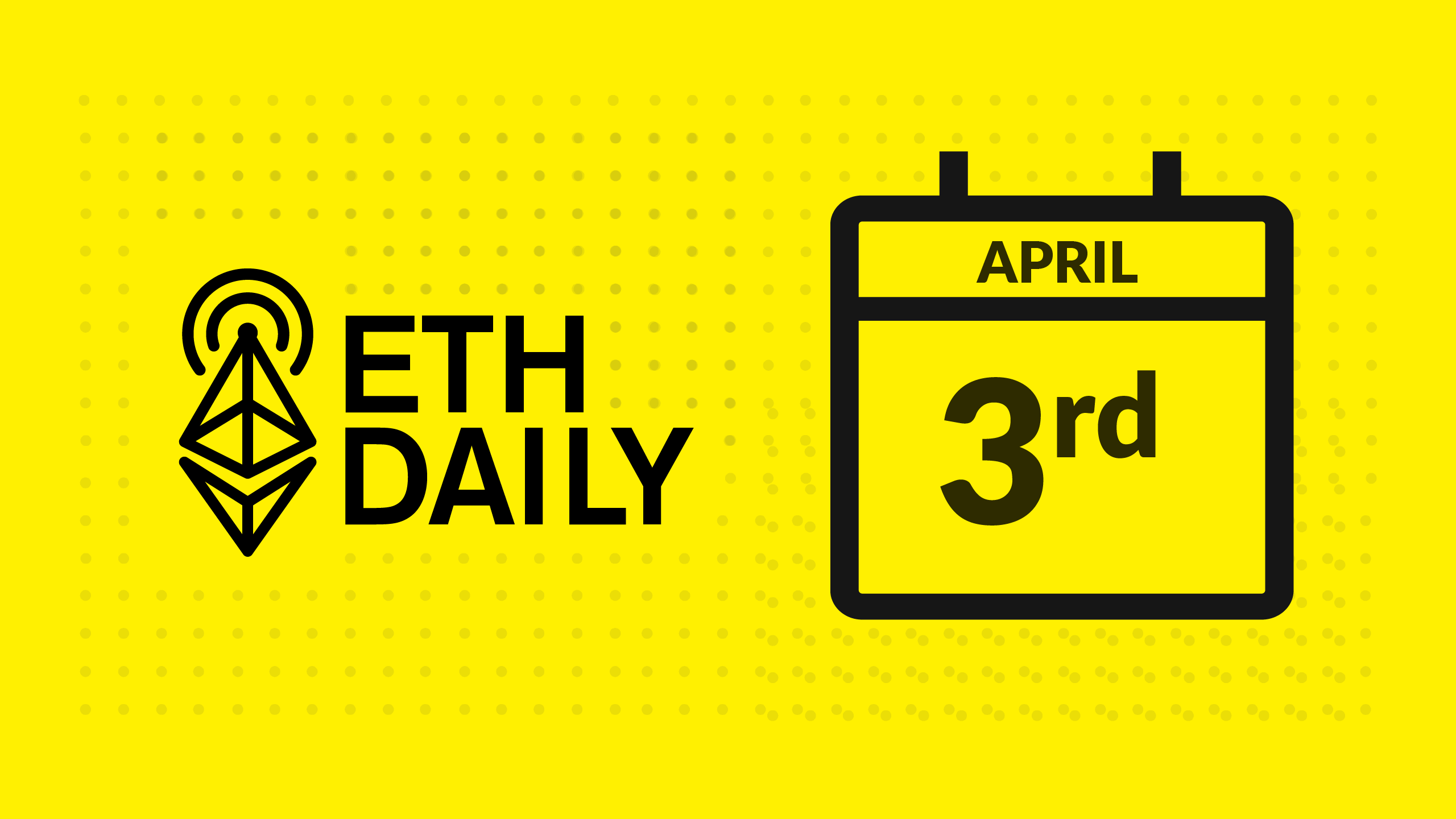Arbitrum Faces Scrutiny Over AIP-1
Monday, April 3, 2023

Quick Take
- Arbitrum faces scrutiny over its first DAO proposal.
- Arbitrum Foundation reveals it sold 10 million $ARB tokens.
- zkSync Era suffered a 4-hour outage on its mainnet alpha.
- Vitalik discusses the creation of a multi-client ZK-EVM ecosystem.
This episode is made possible thanks to Ether Capital!

Looking for more transparency when it comes to your staking operations? Try out Ether Capital’s new staking dashboard. It’s a free analytics tool that tracks your rewards and monitors validator performance. Register today to try out the free beta version of Ether Capital’s staking dashboard: beta.ethcap.co
Arbitrum Faces Scrutiny Over AIP-1
Arbitrum is facing scrutiny after transferring 750 million $ARB tokens from what was initially allocated to the Arbitrum DAO treasury, without approval from governance. The Arbitrum Foundation also sold 10 million $ARB tokens and loaned 40 million $ARB tokens to Wintermute. The 750 million token transfer is part of AIP-1.
AIP-1 is still in a voting phase and currently holds 82% disapproval from voters. The issue lies with Arbitrum executing actions from AIP-1 without first receiving approval from governance. Arbitrum employee Patrick McCorry later stated that the point of AIP-1 was to inform the community of all decisions that were made in advance.
Breaking Down AIP-1
AIP-1 is a genesis proposal that outlines the structure of the ArbitrumDAO and the Arbitrum Foundation. The proposal also outlines members of the Security Council, the Arbitrum Nova Data Availability Committee (DAC), and directors of the Arbitrum Foundation. AIP-1 allocates 7.5% of the total $ARB token supply to the Arbitrum Foundation.
The AIP also includes a “Special Grants” program that allows the Arbitrum Foundationton to issue grants without approval from governance. Blockworks Research cited concerns over the security of the 750 million $ARB tokens being controlled potentially by only three individuals. AIP-1 voting ends today after being live for the past week.
No Near-Term Plans To Sell More Tokens
Arbitrum refers to AIP-1 as a ratification of something already decided. In a subsequent statement, Arbitrum explained that the initial 10 million $ARB tokens were sold to pay for pre-existing contracts and near-term operating costs. Arbitrum also stated that the Arbitrum Foundation has no near-term plans to sell more tokens.
As AIP-1 is likely to fail, Arbitrum stated it plans to break AIP-1 down into separate proposals that would be voted on individually. The 750 million $ARB tokens sent to the Arbitrum Foundation will be voted on in its own AIP and will now include a vesting schedule. Arbitrum will also provide additional context to its Special Grants program.

zkSync Era 4-Hour Liveness Failure
zkSync Era, an EVM-compatible zkRollup by Matter Labs, experienced downtime on mainnet for roughly four hours over the weekend. In a post-mortem, zkSync stated that a failure in its database for the block queue caused block production to halt. The alert APIs were not triggered by the issue, causing a delay in the team’s response to the issue.
Once the team was aware of the issue, a fix was implemented within minutes. zkSync reminded users that its Era release is still in an Alpha phase and may experience hiccups. The rollup plans to decentralize its sequencer as its long-term solution to guarantee liveness. zkSync Era recently surpassed $100 million in TVL.
Vitalik On Multi-Client ZK-EVMs
Vitalik Buterin published a blog discussing the creation of an open multi-client ZK-EVM ecosystem for Ethereum. While ZK-EVMs are currently used by ZK rollups, the long-term goal is to use ZK-EVMs to verify execution on Ethereum. Vitalik suggests two solutions for enabling anyone to verify L1 blocks in a scalable manner.
The first suggestion is to force users onto L2 by reducing the gas per block target. The second suggestion is to verify L1 EVM execution with a type-1 ZK-EVM. The solution requires the addition of a ZK-EVM client as well as multiple client implementations for robustness. Vitalik believes that an open multi-client ZK-EVM ecosystem is likely to be inevitable.

